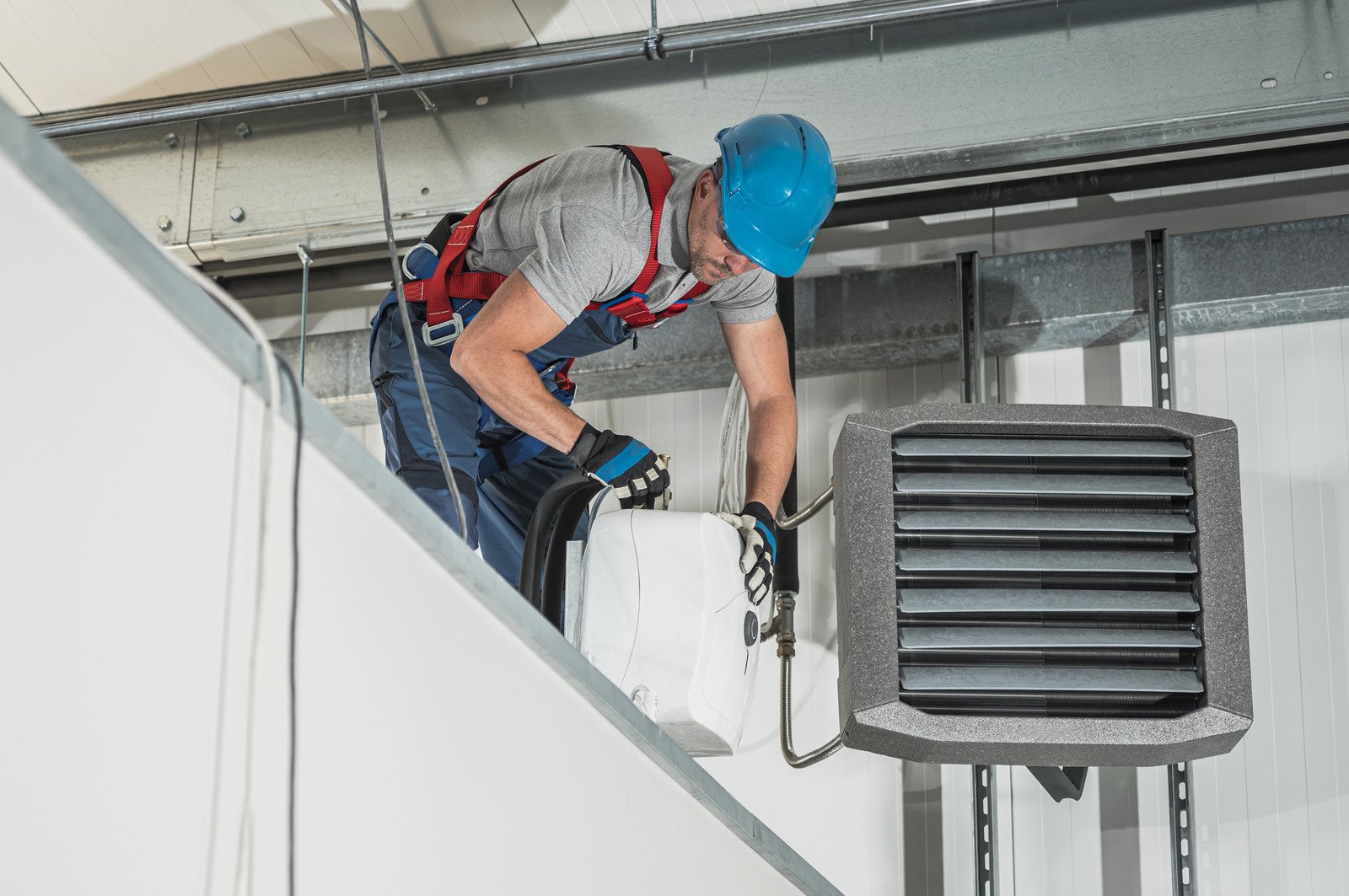When it comes to keeping your home or business comfortable, choosing the right HVAC contractor is crucial. You need someone who not only understands the ins and outs of heating and cooling systems but also puts your needs first. From checking credentials to reviewing warranties, every step plays a big role in your decision-making process. So, what should you look at first to make sure you’re choosing the best contractor for the job?

Quick Summary
- Always verify contractor credentials, including licenses and insurance, to ensure compliance and protect yourself from liability.
- Check experience and specializations to match the contractor to your specific HVAC needs.
- Compare quotes carefully, focusing on clear pricing, service packages, and warranties.
- Choose contractors who offer routine maintenance programs to extend system life and prevent costly repairs.
- Be alert for red flags like poor communication, vague estimates, or pushy sales tactics.
Understanding HVAC Systems and Their Importance
HVAC systems are the backbone of indoor comfort, keeping your home warm in winter and cool in summer. Knowing the different types of systems—such as central air conditioners, heat pumps, and furnaces—helps you make better choices.
Each system has unique benefits depending on your climate and home size. Efficiency is another key factor since it impacts both your energy use and utility bills. High-efficiency models may cost more upfront but save you money long-term while improving comfort.
A properly chosen system can also boost indoor air quality, creating a healthier environment for you and your family.
Verifying Contractor Credentials and Licenses
Before hiring an HVAC contractor, always check that they have the right licenses and insurance.
Licenses prove they meet local regulations, while insurance protects you from liability in case of accidents on your property. Taking these steps gives you confidence that you’re hiring a professional who knows the job and keeps your investment safe.
Check License Validity
Start by checking your state’s licensing requirements. Each state has its own rules, so make sure your contractor meets them.
You can usually verify a contractor’s license through state licensing boards online. These sites also show if there are any complaints or disciplinary actions against them.
This step protects you from scams and ensures the contractor is trained in the latest industry standards.
Verify Insurance Coverage
Insurance is just as important as licensing. A reliable HVAC contractor should carry both liability insurance and workers’ compensation.
Ask for proof of insurance and check that coverage is adequate for the type of work being done. A trustworthy contractor will provide this without hesitation. If they don’t, that’s a red flag.
Assessing Experience and Specializations
Experience matters. The longer a contractor has been in business, the more likely they’ve seen and solved a wide range of HVAC issues.
Also, check their specializations. Some contractors focus on residential work, while others specialize in large commercial systems. Ask about certifications, training, and experience with the specific brands or technologies you’re interested in.
This ensures you’re working with someone who can provide reliable, customized solutions for your needs.
Reading Customer Reviews and Testimonials
Customer feedback can give you real insight into a contractor’s work quality and reliability.
Importance of Authentic Feedback
Honest reviews reveal what marketing materials can’t. Look for patterns—consistent praise or repeated complaints usually highlight a contractor’s strengths and weaknesses.
Pay attention to specifics like punctuality, professionalism, and follow-up service. These details tell you how a contractor really treats their customers.
Analyzing Online Ratings
Don’t just glance at star ratings. A contractor with dozens of solid reviews is more trustworthy than one with a few perfect scores.
Read comments for context. Balanced feedback with both pros and cons is more credible than overly glowing or negative reviews.
Trustworthiness of Testimonials
Testimonials should include specifics—like the type of system installed or the problem solved.
Prioritize reviews from verified sources or reputable platforms. If possible, ask the contractor for references and speak directly with past clients.
This helps you confirm that the testimonials reflect real customer satisfaction.
Comparing Quotes and Pricing Structures
When comparing quotes, focus on clear and detailed pricing. A good contractor should break down costs for labor, parts, and additional fees.
Some contractors also offer service packages, bundling maintenance or emergency visits for better value. Compare these carefully to see which option gives you the best long-term benefit.
The goal is to balance affordability with quality service—don’t always jump at the lowest bid.
Evaluating Warranty and Service Agreements
A strong warranty and service agreement can save you money and headaches in the long run.
Review what’s included—parts, labor, and routine maintenance. Longer warranties usually show the contractor’s confidence in their work.
Also, ask about the claims process. A clear, simple procedure makes warranty use less stressful.
Importance of Energy Efficiency and Eco-Friendly Options
Today’s HVAC systems offer many energy-efficient and eco-friendly choices.
Look for high SEER ratings (Seasonal Energy Efficiency Ratio) to maximize cooling efficiency. Some systems also qualify for rebates or tax credits, lowering your overall cost.
Contractors who use sustainable materials and eco-conscious practices can also improve your indoor air quality while reducing environmental impact.
Understanding Maintenance Services and Programs
Even the best HVAC system needs regular maintenance. Contractors should offer maintenance plans that include inspections, cleaning, and tune-ups.
Enrolling in a service contract helps catch small problems early, improves system efficiency, and extends your HVAC system’s life—all while cutting down on surprise repair costs.
Red Flags to Watch Out For When Choosing a Contractor
Watch for warning signs when interviewing contractors:
- Poor communication or vague answers.
- Estimates without inspections, which suggest a lack of professionalism.
- High-pressure sales tactics to sign contracts quickly.
- Refusal to show licenses or insurance.
If something feels off, trust your instincts and move on.
Frequently Asked Questions
What Certifications Should a Reputable HVAC Contractor Hold?
A reputable HVAC contractor should hold NATE certification and meet all local licensing requirements. These prove they’re trained, skilled, and qualified.
How Long Should a Typical HVAC Installation Take?
Most installations take one to three days, depending on the system type, home size, and existing setup. Always confirm the timeline with your contractor.
What Financing Options Are Available for HVAC Services?
Many contractors offer financing plans or partner with lenders. Options may include monthly payments, making upgrades more affordable.
Can I Perform My Own HVAC Maintenance?
You can handle basic tasks like changing filters and cleaning components, but leave major work to professionals for safety and efficiency.
How Do I Know if My HVAC System Needs Replacement?
Signs include frequent breakdowns, rising energy bills, poor performance, or if your system is over 15 years old.
Conclusion
Choosing the right HVAC contractor ensures a reliable, efficient system that keeps your home or business comfortable year-round.
Always verify credentials, assess experience, and check customer reviews before making a decision. Compare quotes, review warranties, and consider maintenance programs to protect your investment.
With the right contractor, you’ll enjoy consistent comfort and peace of mind for years to come.

